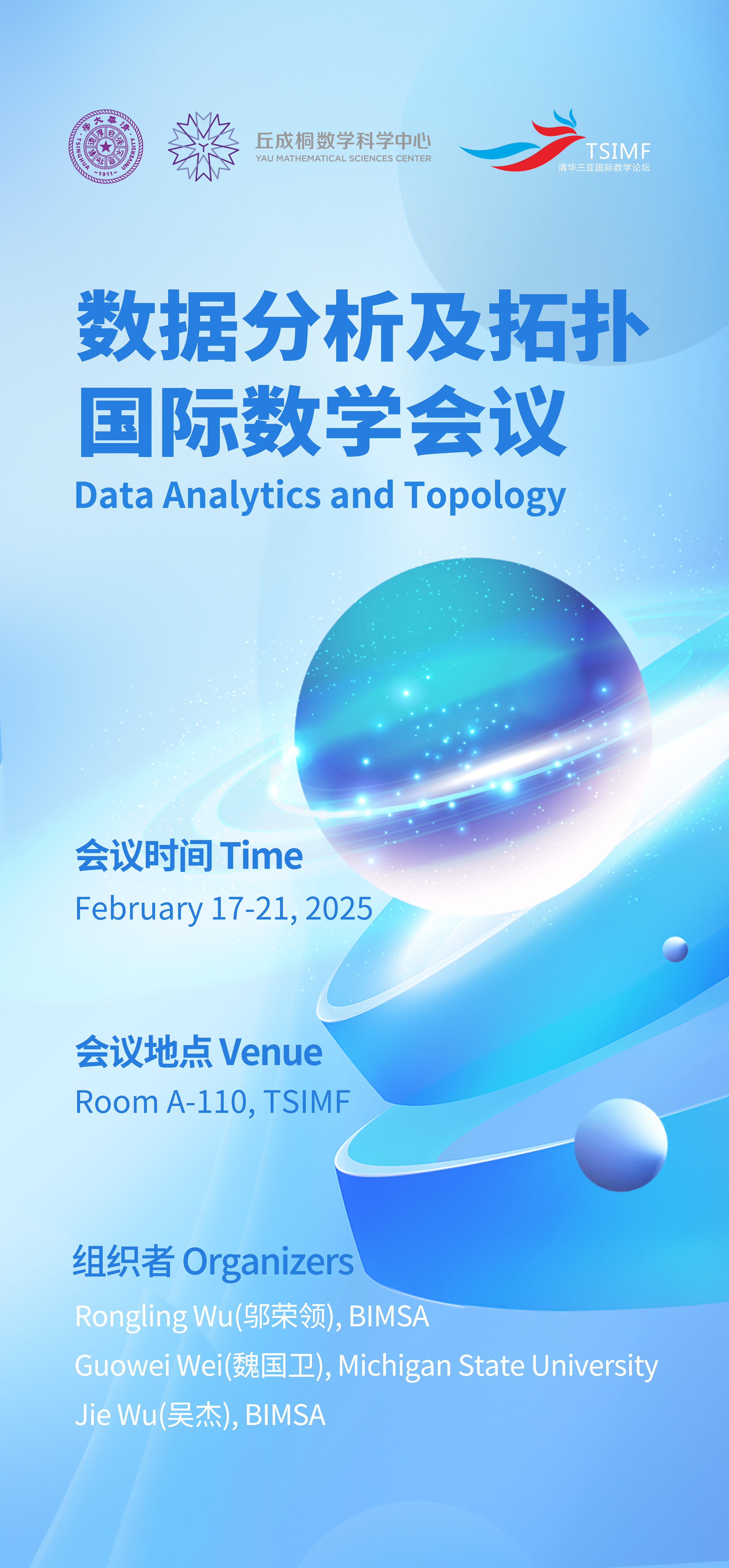ZOOM
Meeting ID: 832 8778 9283
Passcode: TSIMF
会议摘要(Abstract)
Data analysis has a wide range of applications in science and engineering. Topological computational analysis has become an important analytical tool. As an emerging branch of algebraic topology, persistent homology integrates certain geometric features into topological invariants, thereby bridging the gap between traditional topology and geometry. Computational topology, particularly topological deep learning, holds the promise of providing potentially revolutionary approaches to scientific research. For example, persistent homology has achieved significant success in the extraction, simplification, and drug discovery of complex macromolecular structures. The topological descriptions serve as an excellent foundation for machine learning applied to large-scale complex datasets and images. In computational science, algebraic topology is also applied in concurrent computing, distributed computing, sequential computation, and networks. In summary, computational topology has found many valuable applications in fields such as physics, chemistry, biology, materials science, fluid dynamics, computer graphics, control theory, geometric design, shape analysis, and computational science. This success has greatly advanced the development of related mathematical fields, including computational geometry, differential geometry, spectral geometry, geometric topology, geometric algebra, combinatorial mathematics, partial differential equations, optimization theory, inverse problems, and statistics.
The upcoming seminar on Data Analytics and Topology will bring together researchers from mathematics, physics, chemistry, biology, and computational science to explore new methods for connecting different disciplines and to promote the application of topology in both mathematics and various applied fields.
The primary goals of the proposed seminar are as follows:
● To promote the development of mathematical analysis and topological tools that can effectively utilize current computational capabilities to advance our understanding of the complexities of chemical, biological, and computational systems.
● To inspire a flow of information from "experiment to mathematics," similar to how quantum physics in the last century contributed to the establishment of heuristic new mathematics.
● To foster new connections, interactions, and collaborations between mathematicians and data scientists.
● To provide a platform for exchanging ideas and sharing topological results related to data science and computational science research.
● To introduce graduate students, postdoctoral researchers, and junior faculty members to this field and related disciplines, helping to train the next generation of researchers in computational topology.
● To enhance the participation of women, underrepresented minorities, and individuals with disabilities in research related to computational topology and its applications.
举办意义(Description of the aim)
Currently, a significant obstacle for mathematicians in the fields of computational topology and its applications is the lack of knowledge in data science and/or computational science. Conversely, for data scientists and computer scientists, the primary barrier is the absence of knowledge in the newly developed mathematical tools and topological techniques. The upcoming seminar aims to help bridge the gap between scientists and mathematicians and to foster collaboration between these two communities.

邬荣领,BIMSA
魏国卫,密歇根州立大学
吴杰,BIMSA